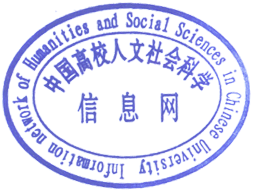关 键 词 :新《环保法》;企业转型升级;双重差分法;技术引进;市场选择学科分类:经济学--生产力经济学
基于2011-2019年中国沪深A股上市公司样本,以新《环保法》实施为准自然实验,采用双重差分法(DID)实证检验新《环保法》实施对重污染企业转型升级的影响及其机制。研究表明,新《环保法》显著促进重污染企业以价值链提升和附加值提高为标志的转型升级。机制检验表明,新《环保法》通过技术引进(设备更新)与市场选择渠道促进重污染企业转型升级。进一步的异质性研究发现,新《环保法》对大小型、东西部地区以及国有重污染企业均有显著的转型升级效应。因此,“十四五”期间可进一步提升规制水平并强化监管力度,实施差异化规制政策的同时引导重污染企业自主创新。
Based on the samples of A-share listed companies in Shanghai and Shenzhen from 2011 to 2019, this paper takes the implementation of the new environmental protection law as a quasi natural experiment, and uses the difference and difference method (DID) to empirically test the impact of the implementation of the new environmental protection law on the upgrading of heavy polluting enterprises and its mechanism. The research shows that the new environmental protection law significantly promotes the upgrading of heavy polluting enterprises marked by the improvement of value chain and added value. The mechanism test shows that the new environmental protection law promotes the upgrading of heavy polluting enterprises through technology introduction (equipment renewal) and market selection channels. Further heterogeneity research shows that the new environmental protection law has significant upgrading effects on large and small scale, Eastern and western regions and state-owned heavy polluting enterprises. Evaluating the policy effect of the new environmental protection law from the perspective of enterprise upgrading not only confirms the effectiveness of the new environmental protection law in promoting the upgrading of enterprises, but also benefits the upgrading of industrial foundation and the modernization of industrial chain. It also provides a reference for improving the environmental governance system jointly managed by the government, enterprises and the public, and accelerates the construction of a new "double circulation" development pattern.

